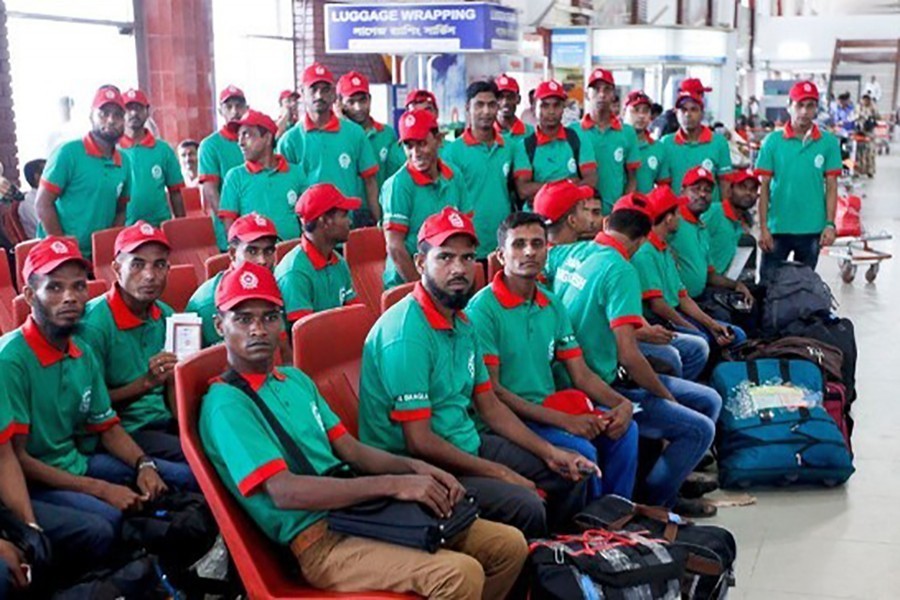The news of Japan's interest in taking skilled manpower from Bangladesh comes as a remarkable booster to the country's manpower sector. Sadly, the sector has been in the doldrums for the past few years. For Bangladesh, the flow of remittance began plummeting alarmingly, with many workers declared out-of-job during the pandemic. Thousands have had to return, many disillusioned and empty-handed. The news of Japan's willingness to take skilled workforce, going against the prevailing trend of focus on just the manual labourers, opens up a fresh opportunity. Especially, because Bangladesh has also been looking for openings to send its newly emerging skilled workforce. In response to Japan's interest, Bangladesh has decided to send at least 3,000 skilled workers to that highly developed country. Currently, it may look like a small beginning but if the initial batch's performance is satisfactory, not only Japan but other develop countries may find in Bangladesh a reliable source for such skilled hands.
According to different sources, foreign workers are in good demand in that country. That Dhaka will put in the best of its efforts to enter that market in a big way is implied. As has been learnt, the Bangladesh expatriates' welfare and overseas employment ministry and International Manpower Development Organisation of Japan in 2017 signed an agreement for training technical interns of Bangladesh in Japan. Simultaneously, the two countries signed a Memorandum of Cooperation (MoC) on recruiting Specified Skilled Workers (SSW) in August, 2019. These formalities point to preparations for years prior to putting into effect the programme of skilled Bangladeshi manpower export to Japan. This is hopeful news that by 2025, Japan will need around 345,000 foreign workers, with 3,000 skilled hands going from Dhaka. Japan, an Asian economic power, has been opening up to the outside world over the last few decades. Thus standing by Bangladesh in times of its phases of economic progress, Japan has emerged as one of the former's standout development partner.
The deal between the Bangladesh ministry of overseas employment and IM Japan contains provisions for training Bangladeshi technical interns in Japan. Under its ambit 178 local youths have already left for Japan. In line with the MoC signed between the two nations, Japan is poised to hire Bangladesh manpower in 14 sectors and industries. There will be two categories: Technical Interns and the Specified Skilled Workers --- to be employed in care-giving sectors. The other areas include cleansing buildings, dealing with machinery and their parts, industrial tools, engaging in electrical and electronic goods gadgetry, ICT technology, ship-building, automobile and aviation sectors. Agriculture, fisheries, food and beverage have also not been excluded.
For SSWs, proficiency in the Japanese language and skill in specific works would be deemed basic prerequisites. The deal on recruitment of skilled and trained workforce from Bangladesh by Japan is apparently progressing well. But seen from the past experience elsewhere, these splendid projects begin faltering midway due to training sessions' loss of steam. Skill-improvement training should continue without pause at both the manpower senders' and receivers' ends.


